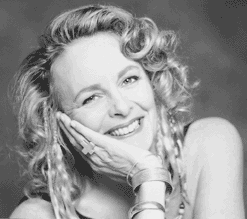
Susan Swan appointed Robarts Millennium Chair in Canadian Studies
By Andrew McRae
Humanities professor, journalist and award-winning novelist Susan Swan was appointed to the prestigious one-year Robarts Chair for Canadian Studies at York University on Feb. 28, 1999, and is set to conduct a millennial project which will analyze how imagination reconstructs history, and how contemporary cultures continuously reinvent their pasts.
Characterized by some as a hip twentieth century Dickens, her brow-raising novels examine gender, sexuality and the idealist in our modern, global culture. Swan has taken her lectures across the globe, including Cheltenham, Athens, Bologna and Adelaide. Furthermore, she gave the Hugh McLennan Lecture at McGill University in 1996, lectured in Stratford on The Taming of the Shrew in 1997, and has recently offered a public talk on "The Burden of Adjustment: Or why I sometimes put up with Racist and Sexist Art" at the 1998 Premier Lecture Series at York University.
Swan has published five books, including the Trillium Award-winning The Wives of Bath, which was subsequently adapted into a film, and The Biggest Modern Woman of the World, which was nominated for the Governor General's Award. Currently, Swan is writing a novel revolving around the infamous eighteenth-century Venetian Jacob Casanova, inspired by an ancestor's journals of her travels with him.
Exploring the myth or legend behind characters and events in history is equal or more important to facts and dates for Swan in her writing. "[I] reconstruct the past with mythic intent...I'm not like an academic historical scholar; I don't care about the factual truth as much as the mythic truth in stories."
In reconstructing Casanova, Swan maintains the biographical details of his life, but focuses on the legend surrounding his character.
Swan suggests that contemporary culture is always reinventing itself, and believes that the real truth lies in a plurality of visions. Her theories are visionary, denouncing the existence of one, accepted history, as this denies other perspectives of a history (emanating from a variety of sources), an opportunity to be presented on an equal footing. "I am interested in a broader canvas," says Swan.
But is Swan not contributing to the continuous reinvention of histories? "I think we have to reinvent the past because we are limited to understanding it in the point of view of the present [and of certain people]," she retorts.
For Swan, novelists, historians and archaeologists always construct pasts; when an archeologist excavates an artifact, he or she must create an historical context for the artifact to be placed into.
Swan will have the opportunity to teach her notions of reinventing pasts as she directs the Creative Writing Program at York and a graduate course in the fictionalized memoir,"Making Yourself Up" in the 1999-2000 academic year. Students will learn ways to construct a past based on their own lives, including writing fictionalized versions of resumes.
Swan replaces Robert Wallace as Robarts Chair. Wallace, who organized the Theatrical Trans/ Formation series, demonstrated how theatre has transformed Canadian culture; Swan will demonstrate how novelists have transformed contemporary Canadian culture on paper.
Andrew McRae is an honours student in history at York University.



